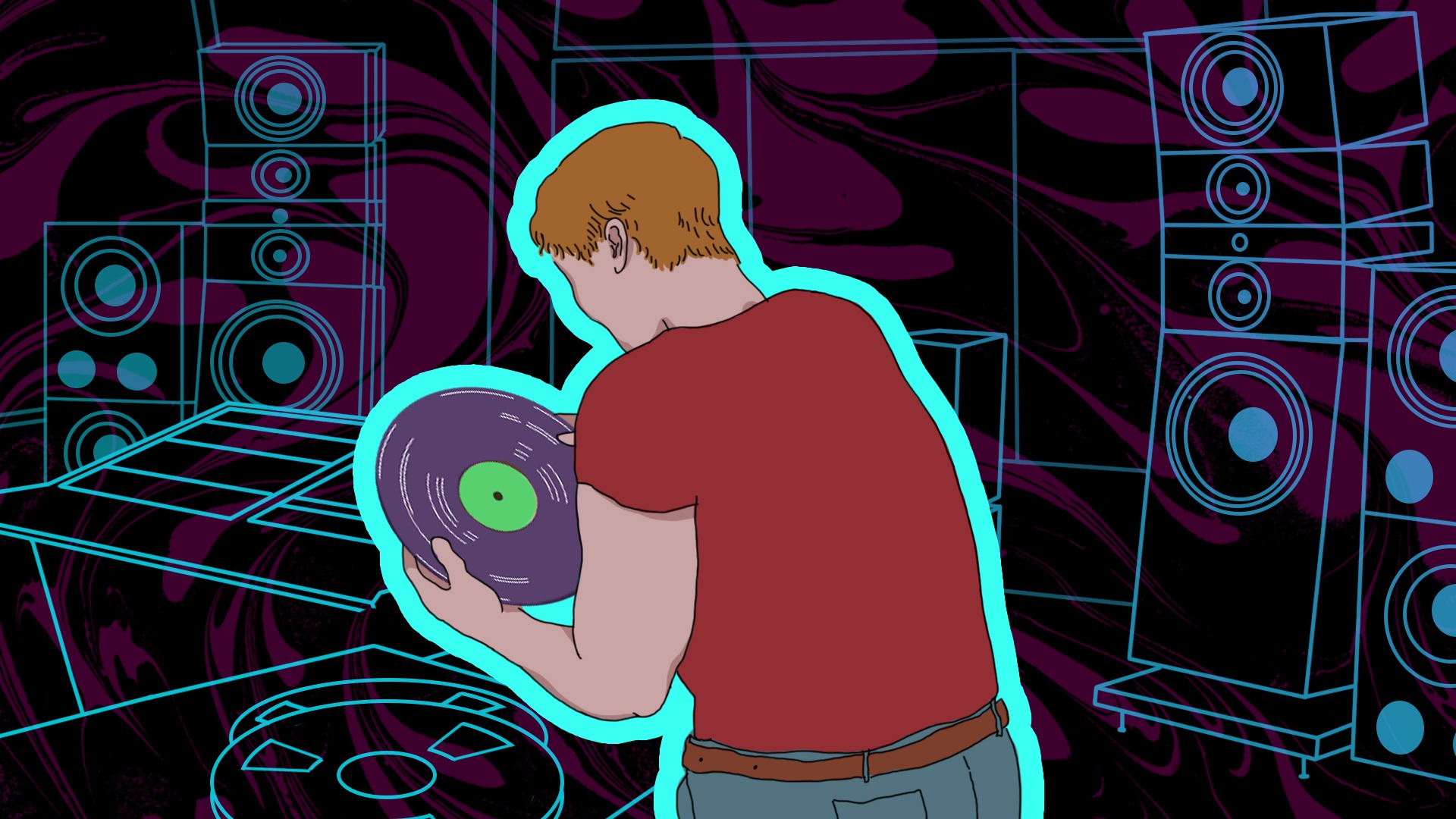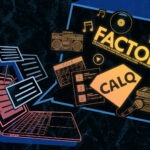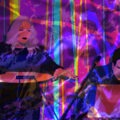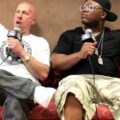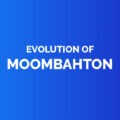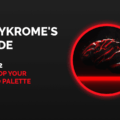As a newly-minted RAC graduate, Félix Laliberté found himself facing a major decision that most students do; where to go from here? Through networking, an ability to recognize key opportunities, and a determination to continue pursuing his passion for audio and music in any form, Félix landed a studio assistant position at renowned Montreal mastering studio Le Lab Mastering. This new journey revealed passions he didn’t even know he had.
RAC: Tell us a little about yourself and what influenced you to pursue a career in sound. When did you first realize that audio engineering/sound design was a field that you wanted to work in?
Félix: I first realized I wanted to pursue a career in sound while studying computer sciences at Champlain College. Within the first few weeks of the program, I knew that it was not the career I wanted to pursue. I enjoyed composing music in my spare time, and I was getting more and more interested in establishing a career related to the world of audio. I later decided to enroll in Recording Arts Canada to pursue this interest.
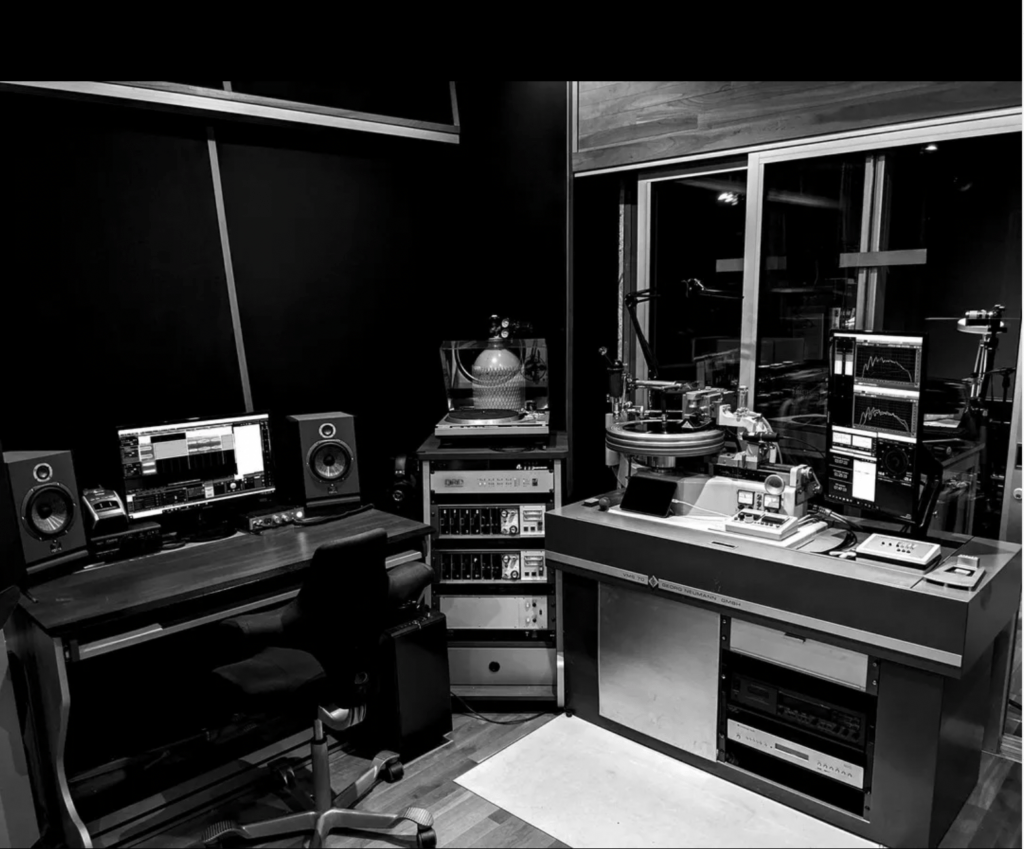
RAC: You graduated last semester and started working at the mastering studio Le Lab Mastering shortly after. Can you tell us a little bit about how you got the job, and the transition from studying audio to working in the industry full-time?
Félix: As soon as I graduated, I got a job selling instruments to gain more relevant experience related to sound. While I was working at that job, I was applying to various studios and jobs that required more experience and knowledge than what I actually possessed. Eventually, someone I know referred me to Le Lab Mastering, who were looking for a new assistant.
Being a student in audio and being a studio assistant are more alike than I thought; I feel like I’m still gaining more knowledge every day and I realize that my learning is far from complete. Working in the industry full time has been challenging because I need to learn very quickly in order to perform well at my job, including learning to work with new equipment or software.
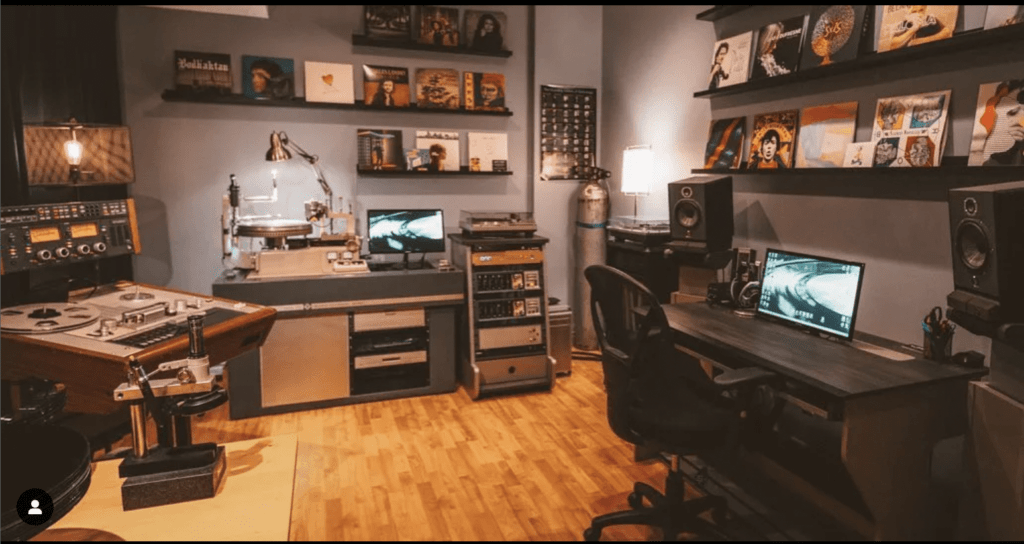
RAC: Can you talk about the interview process to get this position? What are some of the questions or skills tests students who are about to graduate can expect to be asked?
Félix: The interview was not really skill-based – the studio was more interested in finding someone reliable and hardworking. Once I got in touch with the studio, I made sure they knew that I was very interested in working for them. The following day, I got an interview. Two days later, I came in for my first day of work.
I would say that graduates can expect to be asked about which software they are comfortable working with and then told which new ones they need to learn about quickly.
RAC: Please briefly explain the difference between mixing and mastering.
Félix: The main difference between mixing and mastering is that when you’re at the mixing stage, you blend all the elements of a song together to make them sound good.
When you’re mastering, you have to double-check the work that was done before you, and adjust the overall balance and loudness of the sound to match the references that were provided, as well as making sure the track meets the various industry standards.
RAC: How did your education help you in this current position? Can you think of any specific things you learned that you apply to your work?
Félix: All the basic audio knowledge I gained at school has been key in helping me fully understand the work that I do everyday.
Learning about different workflows was also helpful since I had to learn how to use new softwares like Sequoia, Samplitude, and Nuendo.
RAC: Can you talk a little bit about your responsibilities at the studio? What does your day-to-day look like typically?
Félix: As an assistant, I don’t always work on music-related tasks; I basically do everything in the studio. This means I can go from cleaning the space to doing album quality checks before sending the products to the clients. Some of my audio-related responsibilities consist of building sessions, exporting projects, repairing audio files, etc. I often communicate with clients to answer a variety of their needs, including any problems they may have that require my help.
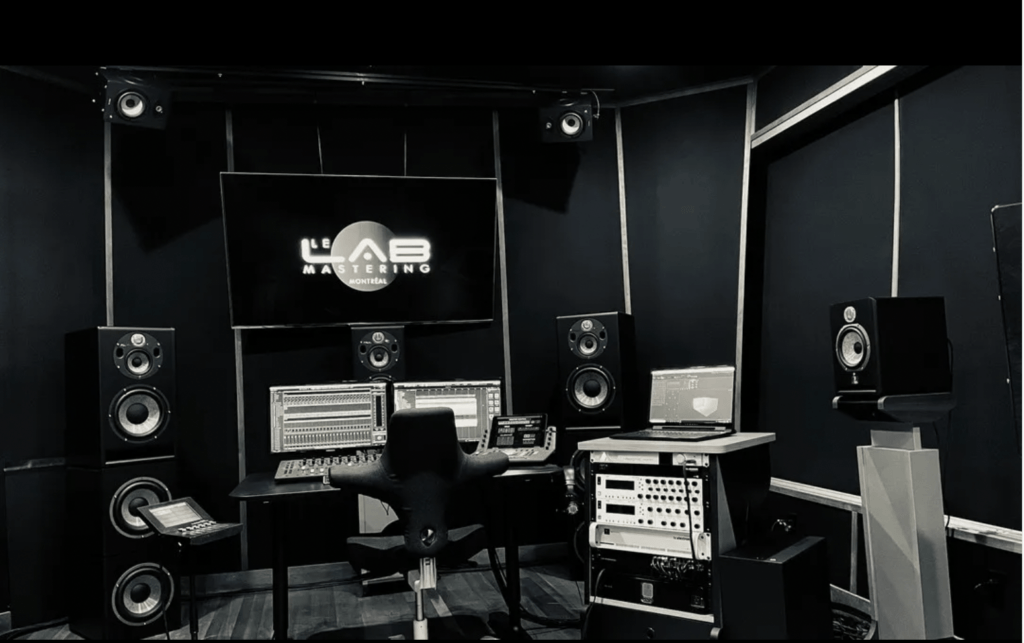
RAC: You get to work alongside audio engineers who have impressive résumés. Can you share some insights or tips you’ve gained from working with them? Have they shared any knowledge that you found to be particularly impactful?
Félix: “Do not take anything for granted,” that’s a phrase I get told often.
Since we are the last ones at the studio to touch the projects before they are released to the public, it’s really important to never assume anything. What I mean by this is that you have to ask questions and make sure whatever you’re doing is correct (both in terms of what the client wants and the logistics of what you’re doing). Always double-check your work and get it double-checked by a qualified peer. You do not want to accidentally send the wrong file to a client or share something that’s poor quality.
RAC: What are some unique pieces of equipment at Le Lab that you hope to work with in the near future? Can you talk a little about what they do and why you find them to be particularly interesting?
Félix: A piece of equipment I’m looking forward to using more is our immersive mastering suite. I feel like I have a lot to learn about immersive sound, and I’d be very interested to gain more knowledge about it.
Another piece of equipment I would like to use would be our Neumann VMS-70 Cutting Lathe, which we use to cut master lacquers for vinyl reproduction.
The last piece of equipment which I am particularly excited about working with more is the Focal Utopia sound system.
RAC: You work in a mastering studio. Is mastering the direction you’d like to go long-term in your career? Why or why not?
Félix: Yes! The more I learn about mastering and all its subtleties, the more interesting it gets. I’ve realized that it’s a really important part of the music creation process since it is the last time a track will be touched before it’s distributed to listeners.
I also feel very lucky to be able to work alongside such amazing mastering engineers!
RAC: What is the biggest challenge you’ve faced in learning to become a mastering engineer?
Félix: As mentioned, mastering is the last step before distribution, which means everything needs to be perfect. This is one of the biggest challenges for me because that puts a lot of pressure to make a track perfect. After you’re done with a song/album and it’s released, nothing can be changed. That means that you can’t afford to ignore a problem or make the mistake of not noticing one at any point during the mastering process.
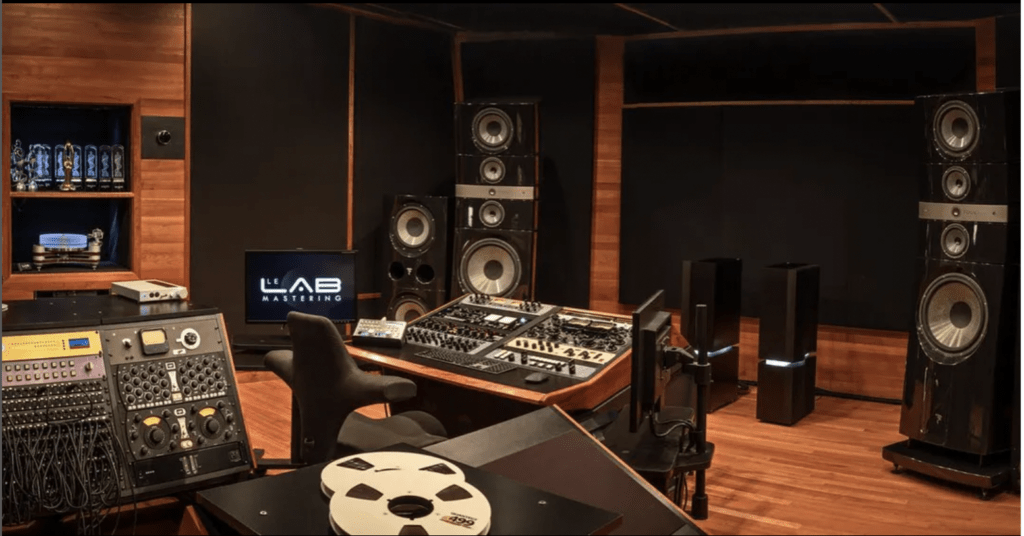
RAC: Is there anything your studio does/is working on that other studios aren’t?
Félix: A special service we recently started offering is immersive mastering. We use a 7.1.4 monitoring system to master projects. This allows clients to listen to music with spatial representation that’s even larger than the usual stereo field.
Something else that we do that’s unique is master lacquer cutting for vinyl reproduction. Cutting a lacquer is the first physical step in the process of vinyl pressing. We actually recently cut our 1000th cutting project!
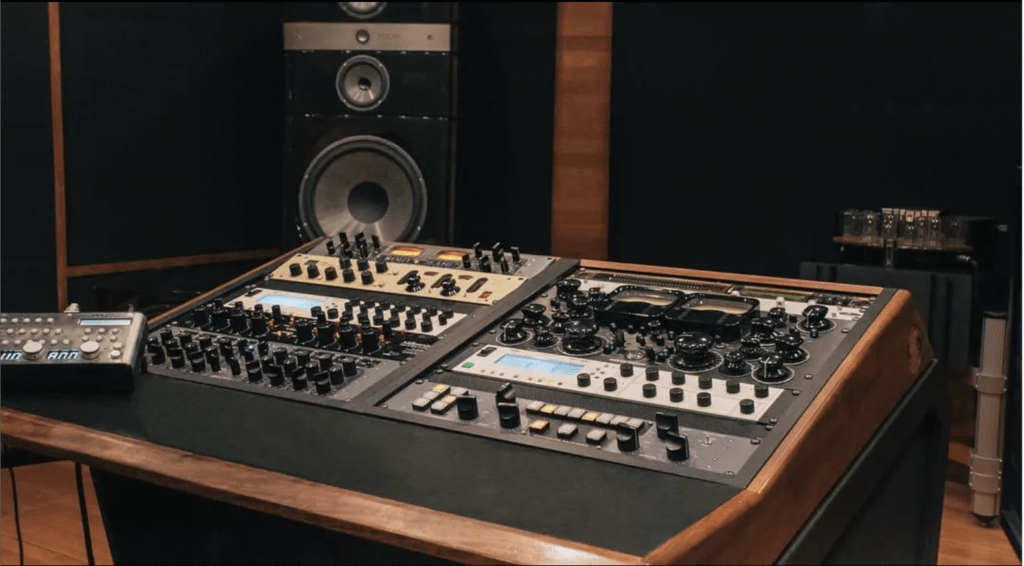
RAC: Has working in a mastering studio changed how you listen to music?
Félix: Yes it did! Since part of my job is to do quality checks on projects, my ear has developed a lot and I’ve started to notice little details in the songs I listen to more and more.
RAC: Are there any exciting projects you’re looking forward to working on?
Félix: I’m really looking forward to mastering more projects in the future. With all the work I’ve been putting in at the studio, I found that I’ve recently hit a wall when it comes to creating music. One of the projects that I look forward to working on is composing new music so that I can master it – this is really with the goal of developing my skills as a mastering engineer. I also recently started to offer my services to master clients’ songs and albums, which has been an amazing opportunity for me.
Written by Ania Szneps
Illustration by Yihong Guo
